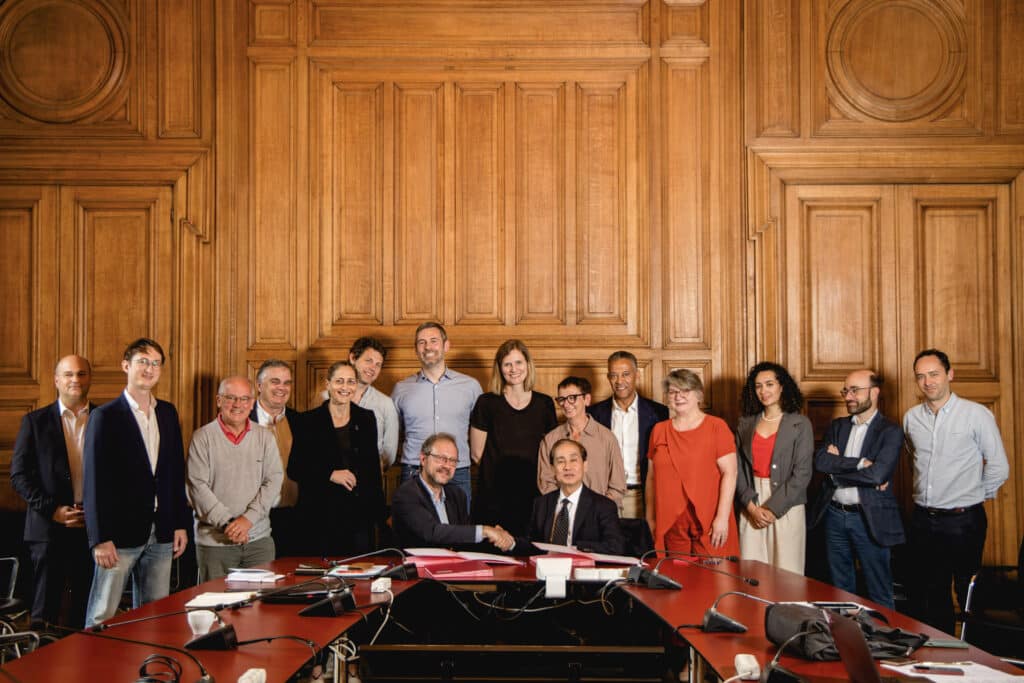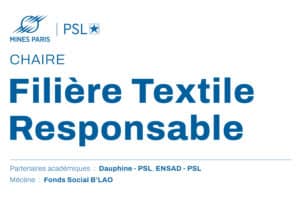Mines Paris – PSL launches the Filière Textile Responsable Chair


In 2024, the textile industry in France represented 2,200 companies, 80% of which were SMEs, and employed more than 62,000 people. A significant source of pollution, the industry needs to move towards more sustainable practices.
Against this backdrop, Mines Paris – PSL, the benchmark school for ecological transitions, is launching the Filière Textile Responsable Research and Teaching Chair, initiated by Phu Tran Van, founder of Fonds Social B’Lao, with the ambition of bringing together industry players who share the values of environmental and societal responsibility.

The Chair aims to consolidate and expand scientific knowledge to support the repositioning and reindustrialization strategies of companies in the industry. All partners are committed to inventing new creative and industrial processes, particularly through digitization and automation (Industry 4.0), which are conducive to human development and protect the natural environment.
The Chair builds on the ENAMOMA-PSL program (Engagement pour des Alternatives Mode & Matière créatives et responsables), co-created in 2016 by three of PSL University’s members:
The challenge of the program is to bring together a diversity of disciplines and players to support the ecological, social and technological transition of the world of fashion and materials.

Michel Schmitt, Acting Managing Director of Mines Paris – PSL & Phu Tran Van, Founder of Fonds Social B’Lao, at the signing of the Chair at the School.
The aim of the Chair is to consolidate ENAMOMA-PSL’s position of excellence at the highest international level on the themes developed, by promoting exchanges and collaborations with internationally recognized teams. The Chair will strengthen links between the academic and professional worlds, in terms of both teaching and research.
Cédric Dalmasso, Director of the Centre de Gestion Scientifique Mines Paris – PSL and co-holder of the Chair with Colette Depeyre, Academic Director of ENAMOMA – PSL and Senior Lecturer at Université Paris Dauphine-PSL.
The program also supports the Master Mode & Matière, which trains students committed to transforming practices. Conceived as a platform for interdisciplinary experimentation, the program is a meeting place for students, teachers, researchers and professionals from the fields of design, engineering and management.
Phu Tran Van, founder of Fonds Social B’Lao: “Our model eliminates the separation between capital and labor, illustrating a ‘social capitalism’ where companies are governed by those who build them. The fund supports the lifelong education efforts of companies working together in their own industry. This commitment aims to transmit a responsible heart to the members of each company in the sector, and to spread this value, through the sector, throughout the city. In the long term, this reunion of hearts strengthens the economy of all the companies in the sector, and contributes to sustainable economic growth. The Fund wishes to cooperate closely with the local education systems in place to promote new models of learning, in which the companies in the sector co-participate, both in the development of the teaching program and in their transmission.”
Patrons will have access to the Chair’s work, and will be able to participate in its orientation through the governance bodies created for this purpose. In this way, they will reinforce their expertise in the area covered by the Chair.